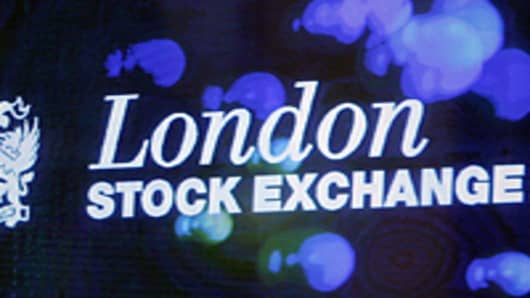Fast-growing technology companies would be allowed to float as little as 10 per cent of their business on the London Stock Exchange under proposals being weighed up by Downing Street.
Senior figures in the government have given their backing to the proposals which would ease for the technology sector the current requirement that at least 25 per cent of the shares of a listed company be freely tradeable.
The government is keen to avoid losing technology IPOs (explain this) to the US after a drought of such deals in the UK. There have been no technology IPOs on London’s main market since early 2010.
Officials are looking for inspiration to the US JumpStart our Business StartUps (Jobs) Act passed earlier this year, which cut the so-called minimum free float requirement for tradeable shares.
However, any similar move is likely to attract opposition from many institutional investors.
Groups as the Association of British Insurers and the National Association of Pension Funds believe small free-floats can lead to increased volatility in a company’s shares by reducing trading liquidity and make controlling shareholders too dominant at the expense of minority investors.
The FSA (Financial Services Authority) closed a consultation on IPOs earlier this year and is poised to announce its conclusions within weeks. A Downing Street official said that the proposals to cut the listing requirement were being examined separately but could be “wrapped into the process” subsequently.
However, the proposals could face hurdles as the current requirement was set up as a result of EU guidelines, although some flexibility has been allowed in the past.
The FTSE Group is currently tightening entry rules compelling companies to have a free float of at least 25 per cent for them to be allowed in its main market indices. Those rules came into force in January for new flotations while listed companies have until January 2014 to comply.
Index Ventures, one of the UK’s most successful venture capital companies, has been lobbying for changes to the UK IPO rules with partner Robin Klein calling for the minimum free float requirement on the main market to be dropped to 10 per cent in line with Nasdaq.
There is a growing backlog of UK-based, venture-backed technology companies, such as Just Eat, Wonga, King.com and Moshi Monsters, which are becoming big enough to consider a stock market listing.
Aim, the LSE’s junior market, has no free float requirements but many technology companies would prefer a main market listing.
Many European technology businesses are opting to list on Nasdaq rather than on the LSE. Avast, the Czech Republic-based antivirus software company, for example, considered London but ultimately took the business to Nasdaq.
QlikTech, a Swedish business intelligence company, similarly listed in the US after deciding that a listing closer to home was unattractive. The UK market could be losing companies collectively worth tens of billions of pounds if the trend continues.
MySQL, Skype, Playfish, and Lovefilm are all successful European technology businesses that considered but never managed an IPO before being bought by US rivals.
However, not all technology entrepreneurs support the idea as some believe that it is not the float size that is the problem, but a lack of understanding of technology among UK investors, and a lack of quality companies coming to market.
Much of the debate about minimum listings in recent years has revolved around whether the requirement is currently too low rather than too high.
Concerns about corporate governance, particularly at some overseas mining groups, has touched on whether shareholders have been unable to influence management because they only own a fraction of the company.
In its consultation the FSA recognized the debate, citing stakeholders who were concerned that free float requirements should be used to assure effective governance arrangements. The City watchdog said that the requirements had been introduced to maintain liquidity rather than to control governance issues.
However, the paper said that consideration could be given to enhancing the rights of minority shareholders by letting them veto certain resolutions or even letting minority shareholders determine a company’s governance arrangements.
The FSA refused to comment on Thursday.


